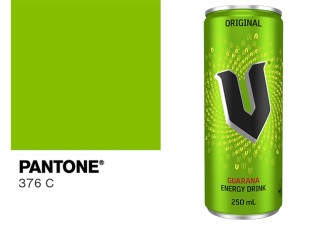INTA submits amicus curiae brief on plain packaging laws
29 March 2019

INTA has submitted an amicus curiae brief to the World Trade Organization (WTO) Appellate Body Secretariat emphasizing the association's continuing concerns with Australia's plain packaging tobacco law (Image: Department of Health and Ageing, Government of Australia).
The International Trademark Association (INTA) submitted an amicus curiae brief to the World Trade Organization (WTO) Appellate Body Secretariat on January 10, which emphasizes the association’s continuing concerns that Australia’s plain packaging tobacco law is inconsistent with Australia’s obligations under The Agreement on Trade-Related Aspects of Intellectual Property Rights (TRIPS).
INTA filed the brief in its capacity as amicus curiae in the consolidated appeal by the governments of Honduras and the Dominican Republic against the WTO Reports of the Panels dated June 28, 2018, that upheld Australia’s law – The Tobacco Plain Packaging Act 2011 (TPPA) – prohibiting the use of all trademarks, other than standard character word marks, on tobacco products and their packaging.
In the brief, INTA urged the WTO Appellate Body to seriously consider the “highly negative effects that the TPPA could have not just within the tobacco industry, but potentially across all sectors of consumer goods.” INTA submits that these plain packaging measures erode internationally protected intellectual property rights under Paris Convention and TRIPS.
According to INTA, “The panel also erred in not considering that standardizing the packaging of tobacco products will facilitate the spread of counterfeit tobacco products by making them easier to produce and more difficult to detect.”
Specifically, INTA contends, the panel began its consideration of Article 20 of TRIPS based upon an incorrect premise. Contrary to the conclusion of the panel, the General Agreement on Tariffs and Trade and TRIPS do not concern the rights of states. Rather, those agreements are about states relinquishing certain of their powers in order to free commerce and trade, and consequently, to provide global consumers with more choices in products and services at a lower cost.
As a global membership organization representing brand owners and IP professionals, INTA has a particular interest in this appeal as it has a significant impact on the rights and interests of consumers and trademark owners alike. It seeks to provide a perspective on the issue of plain packaging so as to assist in and contribute to the advancement of laws that are in the interest of the public at large and right holders in the global economy, the association said in a press release.
For several years, INTA has objected to plain packaging requirements through submissions in several jurisdictions where the issue was being considered, including Australia.
“These restrictions act as encumbrances which effectively require tobacco manufacturers to cease using most of the trademarks that they have legally registered in Australia,” according to the brief. “Any interference by WTO members with intellectual property rights, including established trademark rights, must be viewed with great skepticism as a potential unlawful deprivation of private property or, at best, a prohibited intrusion on the ability of trademark owners to protect their marks from infringement and dilution.”






